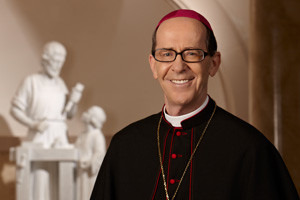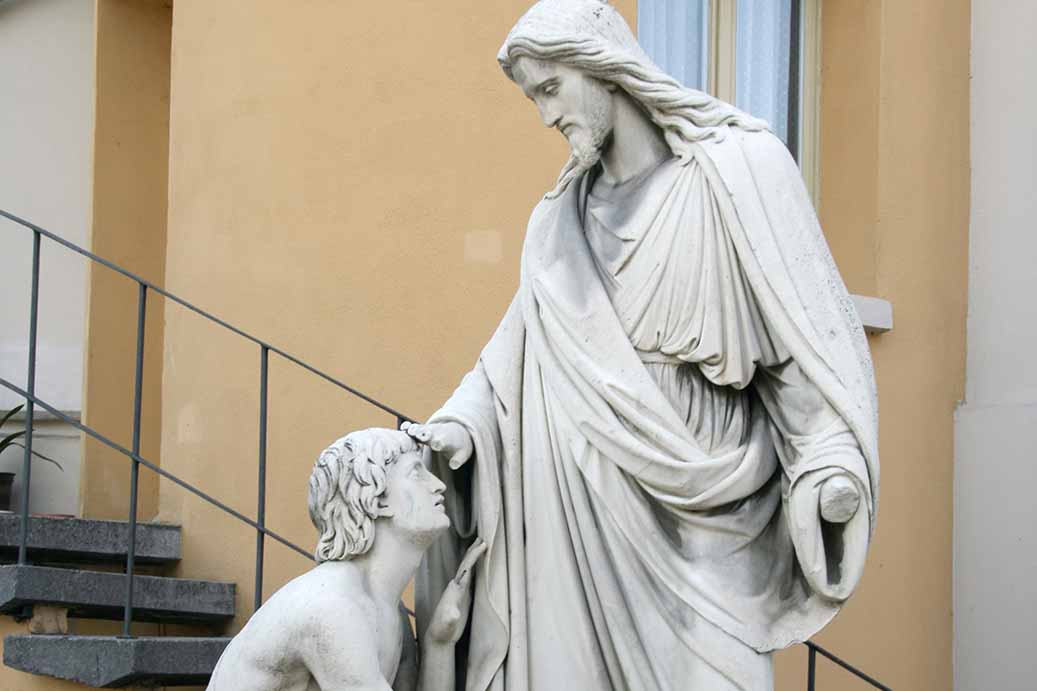First in a Series
Mark the Evangelist recounts a telling story about a blind man named Bartimaeus cured by Jesus because of his professed faith. After Bartimaeus was healed of his blindness, he followed Him “along the way” (Mk 10:52); that is, he became His disciple. To be a disciple, he first had to be healed, not so much of his physical blindness but, above all, of his spiritual blindness.

St. Paul, who first had to be physically blinded before he was ready to admit his spiritual blindness, writes to the Ephesians (Eph 1:18), “May the eyes of your hearts be enlightened, that you may know what is the hope that belongs to His call, what are the riches of His glory in His inheritance among the holy ones.”
Seeing with the eyes of the heart
Large crowds flocked to Jesus as He walked the hills and valleys of Palestine, as He visited Capernaum, Cana and many more towns and villages. A multitude of people saw Jesus with the eyes of the body but failed to see Him with the eyes of the heart. Others like Bartimaeus received this great treasure of faith in Christ.
EN ESPAÑOL: El discipulado: Un viaje, no un destino
To open the eyes of the heart and to see what others do not see, we need to receive the gift of faith, with the help of the Holy Spirit. The gift of faith blesses us with awareness that Jesus wants a loving relationship; that is, He wants us to accompany Him along the way of life. When the first disciples asked Jesus (Jn 1:38-39), “Where are you staying?”, He responded, “Come and you will see.” And indeed, there was so much Jesus wanted them to see, so much that He wants all of us to see. Looking through the eyes of our hearts, three things should stand out to us today:
- His plan of salvation for all the world and His unique vocation and mission for each of us;
- How to live in a manner pleasing to God, beneficial to others, and leading to full discipleship in Christ;
- The riches of God’s glory and mercy, bestowed upon us in part now, with still far more to come (1 Peter 1:4), “an inheritance that is imperishable, undefiled, and unfading, kept in heaven for you who by the power of God are safeguarded through faith.”
Faith is a journey
When Bartimaeus was healed of blindness and began to follow Jesus on the way, that was a great blessing for him, yet it was only the beginning. For discipleship is a long journey that starts with the humility of admitting our need for God. Bartimaeus did not hide his neediness from anyone; he shouted over the din of the crowd (Mk 10:47f), “Son of David, have mercy on me.” They rebuked him, telling him to be quiet. But he just shouted out even more, “Son of David, have mercy on me.”
When Jesus stopped and called him over, this blind man’s heart surely leaped for joy, for he was being invited to a direct, personal encounter with Jesus, the Son of David, our Savior and Lord. And as soon as his eyes were healed, Bartimaeus found himself face-to-face with the One who described Himself as “the way and the truth and the life” (Jn 14:6).
Even though he was deeply grateful for the gift of seeing with the eyes of his body, Bartimaeus knew that there was so much more to see. So, even without a word from Jesus in this regard, Bartimaeus began at once to follow Him.
‘Put out into the deep’ (Luke 5:4)
Already in the Old Testament, the Lord made it clear that the life of faith is a journey, not a destination. This is evident in the life of our Father in faith, Abraham; it is evident in the Patriarchs and Prophets; and it is beautifully described by the Prophet Isaiah (Is 35:8-9):
“A highway will be there,
called the holy way;
No one unclean may pass over it,
nor fools go astray on it.
No lion will be there,
nor beast of prey go up to be met upon it.
It is for those with a journey to make,
and on it the redeemed will walk.”
The journey taken up by disciples of Jesus requires us to live our faith deeply. Only those who do so throughout their days will successfully complete the journey. However, those of us who greatly desire to be faithful to Jesus, often, fall short of the mark, and need to repent and begin again. That is why the way of discipleship requires our individual daily conversion, our readiness to repent and begin anew, and an undying commitment to Jesus with the constant assistance of the Holy Spirit.
This journey also necessarily entails the Cross. Jesus makes this very clear (Mk 8:34), “Whoever wishes to come after me must deny himself, take up his cross and follow me.” The cross frightens us, especially if we presume to do it on our own, but if we recall that disciples of Jesus “remain in Christ and He remains in them,” through the gift of living faith, just like “branches on the vine” (Cf. John 15:1ff), then, we can be sure that we will never be alone. At all times, He is “the Alpha and the Omega, the Beginning and the End” (Rev 21:6), the one who calls us, accompanies us, and leads us to abundant life with Him in eternity.







